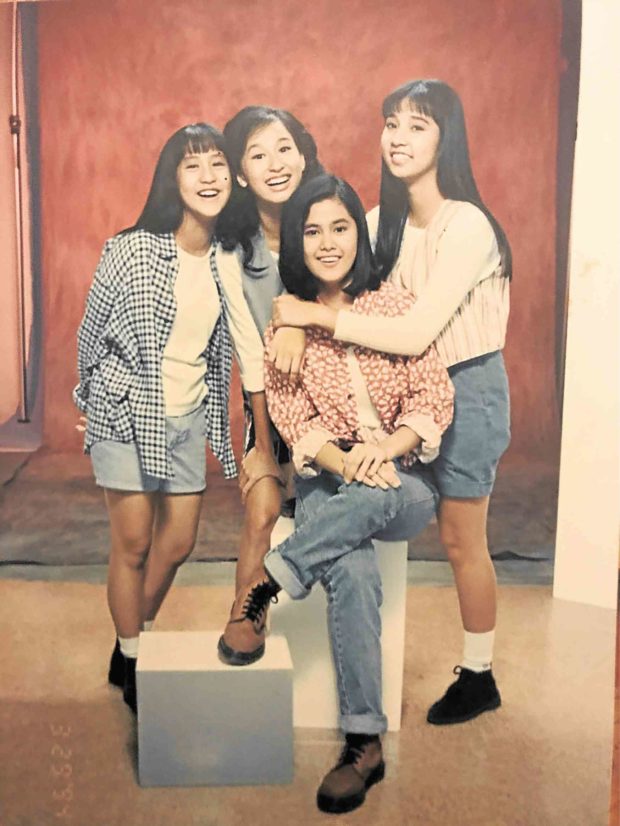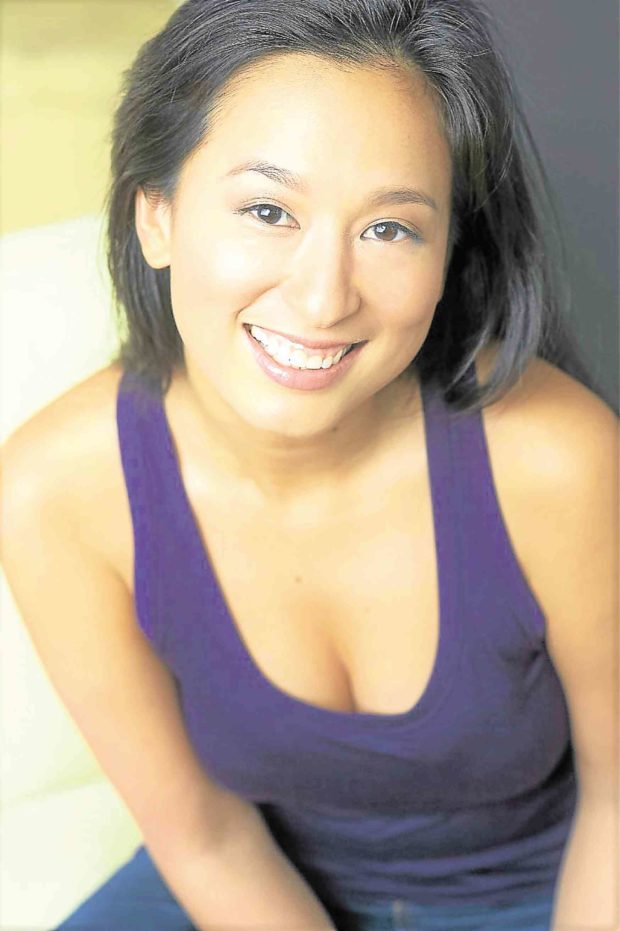A Fil-Am actor’s life: Marie-France Arcilla
(Second of a series)
LOS ANGELES—“I always knew I wanted to be a performer. Even from a very young age, I had a burning desire to go to Hollywood so that I could dance with penguins. Like Julie Andrews in ‘Mary Poppins,’ you know?”
I asked Marie-France Arcilla to submit her “short bio” for this piece. The paragraph above was from the bio she wrote, which reads like a personal, heartfelt short story.
The daughter of Emy Arcilla, the late basketball announcer, began her career on Philippine television. She was known as Marnie during her “Ang TV” days.
From her ABS-CBN stint with the likes of Jolina Magdangal and Claudine Barretto, she made the big jump to study acting in New York, eventually landing TV and stage roles. That’s when she decided to use her full real name, Marie-France Arcilla.
I remember enjoying the performance of Marie-France in “Shout! The Mod Musical,” an Off-Broadway musical set in London between the early 1960s and 1970.
These days she lives in Los Angeles with her husband, Julien Ruaux, and their two young children.
As I mentioned, the “short bio” of Marie-France is so engaging that I will run portions of it here:
“My father was ‘in the business,’ but not super inclined to encourage me to enter it, so I spent many nights in my bedroom, angry in the dark that I wasn’t born in Flatbush (New York) like Barbra Streisand. If only I’d been born in Flatbush, I thought, I’d be a star by now.

Marie-France Arcilla (second from left), then known as Marnie, with the “Ang Sunsilk Girls” (from left): Jolina Magdangal, Joymee Lim (seated) and Jane Zaleta
“Doing ‘Annie’ at my school, I was approached by Mariole Alberto to audition for this new show on ABS-CBN. I got on a two-hour bus to Quezon City, walked in front of Johnny Manahan who said, ‘What’s your last name? Alam ba ng tatay mo na nandito ka?’ He called my dad and I was grounded for a little bit.
“But then, I landed in the original cast of ‘Ang TV’—so, small price to pay—along with Jolina Magdangal, Claudine Barretto, Angelu de Leon, Gio Alvarez and Ericka Fife, who would soon become my best friend. It was a great time, becoming one of the ‘Sunsilk’ girls and hosting our own segment on ‘Sa Linggo nAPO Sila.’
“Even when I left TV … I never forgot the theater. I had the privilege of working with Philippine theater’s greats, such as Bobby Garcia, Bart Guingona, Tony Espejo and Ricky Abad.
“I obviously realized that my first calling was my true calling, so I moved to New York City and studied at the American Musical and Dramatic Academy.
“I had the time of my life doing shows in New York and across the United States, most notably the revival of ‘Working’ by Stephen Schwartz with songs by James Taylor and Lin-Manuel Miranda, for which I won a Drama Desk for outstanding performance with my castmates (Donna Lynn Champlin, Kenita Miller, Jay Armstrong Johnson, Joe Cassidy and Nehal Joshi).
“I was host of ‘Cinema AZN,’ a series on the now-defunct AZN network that explored Asian and Asian American films. I had a few roles on television: ‘Law and Order,’ ‘Cashmere Mafia’ and ‘Gossip Girl.’ I performed in the 90th Oscars in ‘The Greatest Showman’ number. Oh, and I got to work (and spend Thanksgiving) with Julie Andrews. Full circle.”
Excerpts from our chat:
How would you describe your journey as an actor so far? It’s such a strange thing, being an actor. The line between business and personal is so blurry because you are essentially selling yourself: your look, outlook, voice, point of view.
So every triumph and rejection feel like a commentary on who you are as a person. The highs are high, and the lows are low.
How do you prepare for an audition? Any good luck rituals? On the way to the audition, I use this great app called Rehearsal to run lines with me until I have them down cold.
Something I’ve only ever told one other person: I can’t memorize my lines unless I do them first in a British accent.
What is the most frustrating part of trying to land roles in Hollywood? There are so many elements that you have no control over.
For an actor, let’s say you gave an Oscar-worthy performance in that audition room and it’s clear you’re the best actor for the part. But the lead is already cast and you’re: too tall; too short; too young; too old; too young-looking for your older spirit; too old for your young ebullience. You remind the writer of his ex-girlfriend, the producer of her mother, and they already have an Asian, so…
How do you handle rejection? Last year, I was on hold for a comedy series. I heard that I was the “top choice” for the part, but that they were still assembling the puzzle.
After almost a month of back and forth, they thanked me for my patience and told me they were going with someone else. I was devastated.
Almost a year later, the show finally came out and you know what? I think they made the right choice!
And I was given the gift of knowing that it really had nothing to do with my performance or me as a person.
Have there been times when you almost gave up? Sometimes, it gets so disheartening and I wish I could just decide to make cupcakes for a living or something.
But cooking doesn’t bring me as much joy as acting does.
Do you, as an actor of color, feel that opportunities for minority actors are improving or getting worse? They are definitely improving. Just today, I went in for a part that specified “Filipina.” Compare that to 10 years ago, when it was “Asian” or “all ethnicities considered.” More minorities and their allies are making their way into rooms where decisions are made and bringing their experience of the world in there with them.
But just because it’s improving, it doesn’t mean that there isn’t progress still to be made.
It isn’t truly diverse if all the jobs are going to the same six brown people because “there aren’t any other bankable ones.”
Are you encouraged by the acclaim that three recent films focusing on Asian-American stories—“Crazy Rich Asians,” “Always Be My Maybe” and “The Farewell”—received? Such good films. For so much of film history, Hollywood deemed the minority experience as “unrelatable.” That it needed a sort of translation in order to make it “accessible” to … white audiences.
Films like you mentioned make it clear that each of our stories is, in essence, universal.
What’s your stand on whitewashing—or the casting practice in which white actors are cast in nonwhite character roles—in Hollywood? My gut reaction is, of course, no.
If you tell hundreds of millions of people over and over again that it’s OK for their stories to be appropriated, that they aren’t big enough or famous enough, i.e., white enough for their voices to be heard, then eventually, they will believe it and they will leave the speaking to someone else.
E-mail rvnepales_5585@yahoo.com. Follow him at ruben nepales (@nepalesruben) | Twitter.
